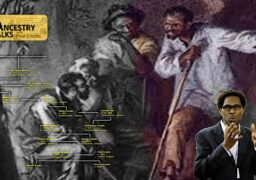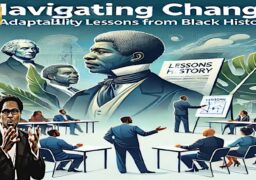
The NETWORK Hosts PRIYAMVADA GOPAL – BLACK HISTORY MONTH 2021!!
PRIYAMVADA GOPAL is an academic, writer and public intellectual who is Professor of Postcolonial Studies in the Faculty of English at the University of Cambridge. Her primary teaching and research interests are in colonial and postcolonial studies, South Asian literature, critical race studies, and the politics and cultures of empire and globalisation. She has written three books engaging these subjects: Literary Radicalism in India (2005), The Indian English Novel (2009) and Insurgent Empire (2019). Her third book, Insurgent Empire, was shortlisted for the 2020 Nayef Al-Rodhan Prize for Global Cultural Understanding. She also regularly contributes to several newspapers and publications, including The Guardian, The Hindu, Al Jazeera, and The Nation. Gopal’s remarks about race and empire have received extensive media attention. In 2021, she was named one of the world’s top 50 thinkers by Prospect magazine. Gopal has written extensively about the impact of empire on contemporary culture in Britain and examined its broader social and cultural effects in South Asia and other former colonial societies. In her book Insurgent Empire, Gopal examines traditions of dissent on the question of empire and shows how rebellions and resistance in the colonies influenced British critics of empire in a process she calls “reverse tutelage”. She argues that ideas of freedom, justice, and common humanity had themselves taken shape in the struggle against imperialism. Gopal has also written about Britain’s imperial amnesia and has called for a more honest account of how the country came to be what it is today. She argues that developing a more demanding relationship to history is essential for moving beyond institutionalised amnesia about the past.
Why Priyamvada Gopal?
As the department works to identify and re-build the trust of victims of Windrush caught up in measures not intended for them we should consider Commonwealth Citizens. Is it possible they have a right to reside in the UK after independence or are we rightly classifying this cohort as foreign nationals subject to Immigration control? Priyamvada’s knowledge of empire should add to our knowledge to help us determine whether our policies in this regard need further consideration.
It’s important to know that Wendy Williams re-visits the Home Office this September 2021 – her review did not make for easy reading:
“The department has failed to grasp that decisions in the arena of immigration policy and operations are more likely to impact on individuals and the families of individuals who are BAME, who were not born in the UK, or who do not have British national origins or white British ethnic origins…..What is clear to me is that the following operational and organisational failings of the department had a causative impact on the detrimental treatment received by the Windrush generation as a result of their entanglement in measures designed for people who have no right to be in the UK: a) Their history was institutionally forgotten. Accurate records were not kept, both relevant to individual cases, and the development of policy and legislation as a whole. b) The legal landscape related to immigration and nationality has become more complicated rather than less so. Even the department’s experts struggled to understand the implications of successive changes in the legislation, the way they interacted with changes in the relationship between the UK and Caribbean countries and the impact those changes had on individuals’ status in the UK…”
“A link between policy and operations should be a permanent feature of how the department works. Among other things, it would help build up the department’s corporate memory and identify emerging risks and issues – both features that would have helped avoid the Windrush scandal”
“As one senior official said: “One of the notable things… about when Windrush broke was [that] we all had to go and educate ourselves about historic legislation…No one knew off the top of their head what the 1971 Act said, what the rules [were] about British colonies that got independence and what happened to people from those colonies…all of that was 30,40 years ago. Well, it’s still live – it still matters but nobody had thought about that for a very long period of time.”
“Wendy’s recommendations include:
Recommendation 5 – The department should accept and implement the National Audit Office’s recommendation that, “The department should be more proactive in identifying people affected and put right any detriment detected. It should consider reviewing data on other Commonwealth cases as well as Caribbean nations”, or such agreed variation to the recommendation as is acceptable to the National Audit Office. In doing this work, the department should also reassure itself that no-one from the Windrush generation has been wrongly caught up in the enforcement of laws intended to apply to foreign offenders. The department should also take steps to publicly reassure the Windrush generation that this is the case.
Recommendation 11 – The department should re-educate itself fully about the current reach and effect of immigration and nationality law, and take steps to maintain its institutional memory. It should do this by making sure its staff understand the history of immigration legislation and build expertise in the department, and by carrying out historical research when considering new legislation
- We invite you to watch the video below ahead of the event.
- This session will be via MS Teams, time for Q & A is included.
Your place will be confirmed by a meeting invitation to join the MS Teams event that will be forwarded to you ahead of the Event.
Please ensure that you are available to attend the meeting slot and if you are not able to attend, indicate in the first instance and/or when you receive the meeting invite.
Please register using your work email (.gov.uk) as these events are open to civil servants only unless prior arranged.







